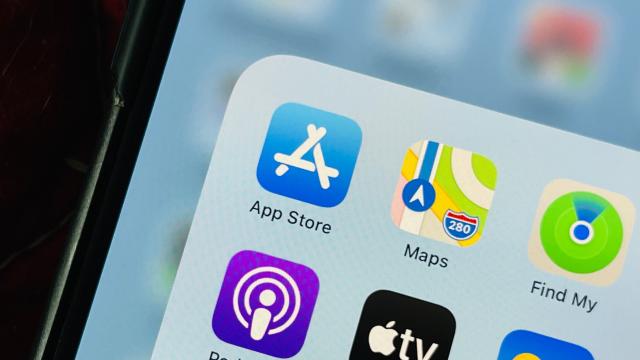In a proposed settlement for a class-action lawsuit with developers, Apple’s agreed to make some key changes after a year of particularly intense scrutiny over its App Store policies. There are a number of changes and they’re pending court approval, but the big one would let developers directly inform customers outside their iOS apps about payment options. Or you know, bypass the so-called Apple Tax to some degree.
“To give developers even more flexibility to reach their customers, Apple is also clarifying that developers can use communications, such as email, to share information about payment methods outside of their iOS app,” Apple said in its announcement. For those transactions, developers won’t have to pay Apple a commission, so long as users consent to be notified outside the app and have the ability to opt out.
Apple is framing this agreement as a compromise that provides developers with more business opportunities while keeping its App Store safe for consumers. (While also reducing scrutiny over antitrust allegations.) It is a significant change from Apple’s strict stance, but it’s probably not what developers were really hoping for.
At the moment, prior to this agreement’s approval, developers can’t notify users about alternative payments — which aren’t subject to Apple’s 30% commission — with customer contact information obtained from the app. This change would at least remove that hurdle, but it’s still not as easy as notifying customers in-app as Epic did during that whole Fortnite debacle.
This isn’t the only proposed change. Apple is also agreeing to create a $US100 ($138) million fund for small U.S. developers.
Payments, according to court documents, will range from $US250 ($345) to $US30,000 ($41,397). Developers are eligible if they made $US1 ($1.5) million or less for all their apps for every year between June 4, 2015, and April 26, 2021. Apple won’t receive any leftover funds, however. Those will go to Girls Who Code.
Apple also agreed to expanded price points for subscriptions, in-app purchases, and paid apps. It also committed to Search results being based on “objective characteristics like downloads, star ratings, text relevance, and user behaviour signals” and that this system would stay in place for the next three years. The App Store Small Business Program — which lets businesses earning less than $US1 ($1) million per year pay a reduced commission — will also stick around for the next three years. Last, but not least, Apple says it’ll release an annual transparency report.
“We would like to thank the developers who worked with us to reach these agreements in support of the goals of the App Store and to the benefit of all our users,” said Phil Schiller, the Apple Fellow in charge of the App Store.
The plaintiffs in Cameron v Apple Inc, also seemed pleased. “We truly are proud that a case brought by two developers, standing in the shoes of tens of thousands of U.S. iOS developers, could help to bring about so much important change,” Steve Berman, the attorney representing iOS developers in the class action said in a statement.
